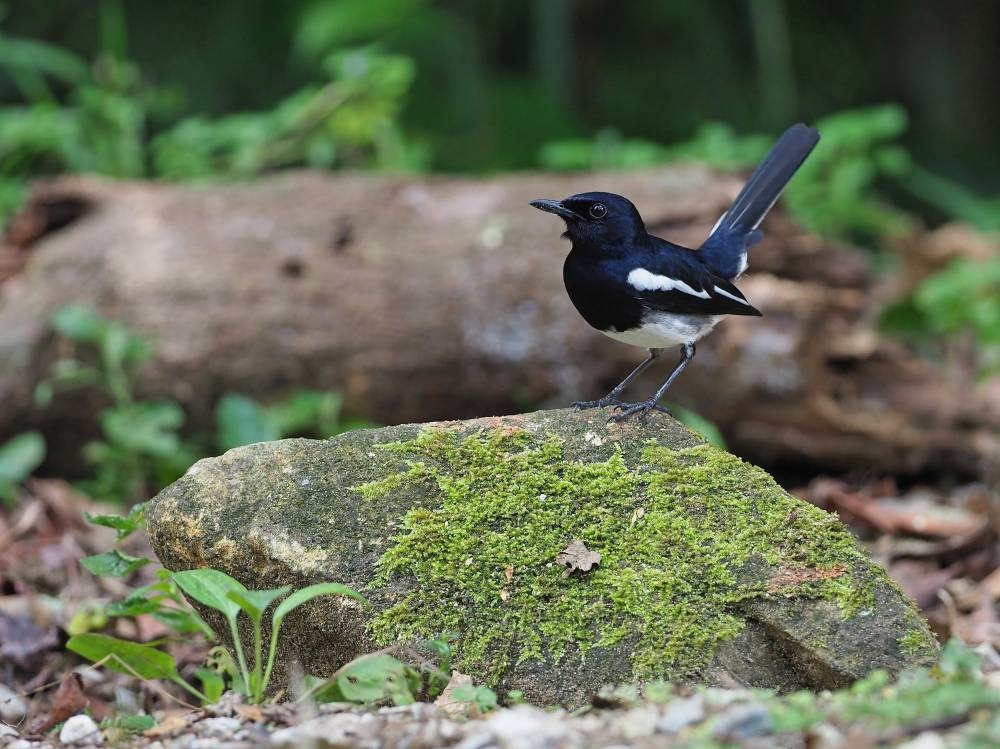PETALING JAYA, July 6 — National Geographic Explorer Serene Chng remembers being horrified after seeing about 17,000 birds crammed in dirty conditions at Jakarta’s Pramuka bird market.
Chng, a Malaysian, who works with non-governmental organisation TRAFFIC conducts research on unsustainable and illegal trade in reptiles and birds was disconcerted at the sight of over 200 bird species.

As senior programme officer, she also writes and analyses data and scientific papers covering the illegal and unsustainable trade that is happening in countries in South-east Asia such as Malaysia, Thailand, Philippines and Indonesia.
“Not all the birds were sold illegally ― some of the species could be sold legally.
“But it was an overwhelming experience because it was my first market survey that I had to conduct in that market.
“Instead of feeling sad, I felt mad and that had fuelled my motivation to carry out research on the bird species especially songbirds to understand why many are illegally trafficked,” she told Malay Mail.
Her research focuses on the songbirds (birds that produce specific musical sounds due to their vocal organ being highly developed).
But the market was not the only place that Chng found had cramped conditions for birds ― as even during transportation of birds after being hunted, they are kept in crates, boxes, tubes or even bottles to reach their next destination to buyers.
For many of these trafficked birds, they suffer a sad plight as their mortality rate can be from 30 per cent to 90 per cent.
“Trappers would collect the birds, put them in bags, and then consolidate them for transport to the point of sale.
“During transportation, many birds die as they are packed into packed crates, boxes, or even tubes and bottles.
“Birds such as songbirds are fragile birds that have to last hours in crates whether it's by land or air ― causing them to suffer from too much heat or having not enough water.”
Working with government agencies and tech sectors to curb traffickers
Over the years, Chng and her colleagues have worked with Perhilitan (Department of Wildlife and National Parks Peninsular Malaysia) and have also listed the Murai Kampung or Oriental Magpie-robin species as protected.

These birds are medium-sized birds with a broad white wingbar running from the shoulder to the tip of the wing.
“Perhiliitan has started to notice the dangers of illegal trafficking on birds and after looking at our reports ― resulting in listing the species as protected.
“Years ago, there wouldn’t be any penalties, barely enforcement action on illegal bird smugglers but things are changing now.
“Online, however ― traders have been going full force to find buyers from across the world in a marketplace or a group and sell them at lucrative prices.”
This is when Chng and her colleagues scour for these accounts online and report them to Facebook to disrupt the trade and reduce the businesses.
While some groups were forced to shut down, others would find ways to open groups in another name to continue their business.
“For us in TRAFFIC, we are constantly working with the technical team in Facebook to track more online illegal bird groups.
“Songbirds are sought after for many reasons ― such as songbird competitions where bird watchers or collectors would congregate to watch their birds warble and get cash money as prizes.
“This is when bird watchers or ordinary Malaysians need to do their part to educate their friends and invite them for bird watching activities where more can appreciate birds in their natural habitat rather than caging them,” she said.
Youthopia to empower young changemakers
Youth activist Melati Wijsen from Indonesia’s Bali known for her Bye Bye Plastic Bags movement where she had helped to bring about the ban on single-use plastics in Bali with other organisations.
Having successfully brought the ban to the island, she has given speeches and talks to youths across the globe, audiences, and policy-makers about their successful ocean clean-up campaigns.
However, wherever she went, she would always get this similar question from youths and students: How do I make a difference?
That sparked her to create Youthopia during the Covid-19 pandemic ― a website where youths can access its masterclasses, blogs, and online workshops available in several languages to learn more about being changemakers.
“The goal was for me to share my work on activism to other youths so that they can learn and be activists in their own communities.
“Younger activists are paving the way to fight for better climate change such as Greta Thunberg who delivered her powerful message on climate change.
“That is why it is important to equip young people with the tools they need to change the world and to learn from each other,” she told Malay Mail.
She plans to make Youthopia an online education website like Khan Academy or like Coursera where many young people can access the website and take up short courses or long courses online.
One of the courses on Youthtopia’s website created and hosted by Melati herself is called Ocean Plastic Pollution Masterclass where youths can learn about the dangers of plastic pollution and what they can do to save it.
Listeners keen on Chng and Melati’s stories are invited to embark on an audio journey with National Geographic Explorers as they share their stories with other Explorers and understand how they protect the wonders of our world.
Hosted by National Geographic Explorer and multimedia storyteller Lillygol “Lilly” Sedaghat, the podcast transports listeners to the last remaining rainforests in the Philippines, the ocean waters off the coast of Singapore, and the deepest, darkest pools of the Mekong River.
Launched this year on Earth Day, the podcast series Expedition: Earth is a 12-podcast series available on Spotify, Apple Podcast, and YouTube.






















